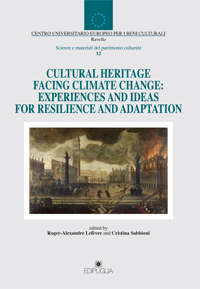The Faro Convention Action plan launched a Topical series on community preparedness and post-disaster revitalisation, following a research study carried out in Fontecchio, Italy in October 2017, with the support of EUR-OPA. Scientists as well as civil organizations stressed, in the context of the Faro Convention, the active role that communities and heritage must play in this process. This series aims at generating further discussion and encouraging action in the heritage field. It bring together a selection of examples, case studies and viewpoints on specific situations across a range of European countries. Heritage and community revitalisation is approached with specific attention to heritage and social change, heritage as an ecosystem of development, and making heritage accessible to citizens. From these different angles, we see what a people-centred approach means in practice; what we need to know before we act; and what challenges exist that we may or may not be prepared for.
Cultural Heritage

Climate change, which lies behind the increasing frequency and intensity of some natural disasters, is exposing cultural heritage to new threats where few used to exist and increasing the vulnerability of sites already at risk.
The EUR-OPA Major Hazards Agreement is helping to protect cultural heritage against natural and technological disasters by promoting risk culture and disaster resilience. It co-operates on a crosscutting basis at the Council of Europe with the Faro Convention on the Value of Cultural Heritage for Society in order to protect tangible and intangible heritage as a vector for identity and collective memory that can consolidate and revitalise communities, and also with the European Landscape Convention in terms of protecting cultural landscapes.
- Recommendation CM/Rec(2018)3 of the Committee of Ministers to member States on cultural heritage facing climate change: increasing resilience and promoting adaptation
- Recommendation 2009 - 1 on Vulnerability of Cultural Heritage to Climate Change of the Committee of Permanent Correspondents

This publication follows the International Conference on Cultural Heritage and Climate Change, held in Ravello, Italy, on 18 and 19 May 2017.
The Faro Convention Action plan launched a Topical series on community preparedness and post-disaster revitalisation, following a research study carried out in Fontecchio, Italy in October 2017, with the support of EUR-OPA.
European University Centre for Cultural Heritage
The European University Centre for Cultural Heritage is one of EUR-OPA Specialised Centres. It promotes knowledge, management and fruition of cultural heritage through an interdisciplinary approach.



